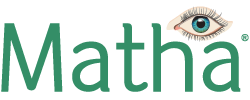Attention Deficit Hyperactivity Disorder (ADHD) Ayurvedic Treatment
ADHD is the most common psychological disorder in which the child shows inattentiveness with hyperactivity/ impulsivity. Boys are affected most than girls. Usually, it is noticed at early school ages when the child can’t pay attention in class, and it may continue to adulthood. The possible reasons of this disorder are genetics, imbalance of chemicals produced in brain cells, changes in the brain areas that control attention, brain damage, infections/ alcoholism/ smoking/ poor nutrition during pregnancy etc. There is no cure for ADHD, but early diagnosis and proper treatment can help managing the symptoms.
Attention Deficit Hyperactivity Disorder (ADHD) Signs and Symptoms
In children, the symptoms are grouped into three types:
- Inattentive– easily distracted, fails to do daily activities, lost in day dreams, difficulty to follow the instructions, fails to complete a task, not paying attention in class etc.
- Hyperactive/ Impulsive– wriggles when sits, can’t sit still for a while, moving continuously, talking too much, distract others et.
- Combined– there will be symptoms of the other two types.
The symptoms of ADHD in adults are something different- like mood swings, anxiety, impulsiveness, being late always, memory problems, frustration, reduced self-esteem, relationship problems, uncontrollable anger, depression, poor concentration etc.
Attention Deficit Hyperactivity Disorder (ADHD) Ayurvedic Analysis
In increased state of vata, there will be restlessness, increased activity, memory issues, poor concentration etc. Prajnaparadha is a condition where there is derangement in any of the three factors dhee (cognition), dhrti (retaining power of mind) and smrti (memory), or all of them. Ayurveda explains unmada (mental disorders) characterised by flickering of mind, problems with memory/ intellect/ daily activities etc.
Attention Deficit Hyperactivity Disorder (ADHD) Causative Factors (Ayurveda)
Aggravation of vata is caused by birth injuries, trauma, infections, exposure to unaccustomed smells/ pollutants etc. Food items that can harm body and mind, unaccustomed food, incompatible food, toxic substances etc are the causes of unmada.
Possible Complications in Attention Deficit Hyperactivity Disorder (ADHD) Disease
ADHD in children leads to complications like academic failure, increased chances of injuries, social withdrawal, addictions etc.
Other systemic diseases and precautions to be taken
Check whether there was any lead intoxication, birth injuries, brain damages etc before planning treatment. Associated health conditions that should be noticed and managed include conduct disorder, learning disabilities, autism spectrum disorder, anxiety, mood disorders, oppositional defiant disorder (ODD), tic disorder etc.
Attention Deficit Hyperactivity Disorder (ADHD) Disease Management with Ayurveda Treatment
Satwavajaya (psychotherapy) achieved by giving awareness about dhee, dhrti, atma (self) etc are the treatment for mental disorders. Internal medicines are given to improve the brain function along with procedures like snehapana (internal administration of medicated ghee or oil), swedana (eg: kizhi, sirodhara etc), nasya (nasal instillation of medicine), vamana (emetic therapy), siropichu (application of cloth soaked in medicines over scalp) etc are provided. Supportive care such as behavioural therapy, dynamic yoga etc are also given.
Diet
Include more vegetables, whole grains, fruits and nuts in diet and reduce the consumption of spicy, cold, very hot, food items, coffee, tea etc. Drink more water.
Exercise
Regular exercise can improve child’s inattentiveness and hyperactivity. Dynamic yoga, pranayama etc are also helpful.
Attention Deficit Hyperactivity Disorder (ADHD) Preventive Aspects in Ayurveda
As the exact reason of ADHD is unknown, it cannot be prevented effectively. Certain precautions can be adopted like avoidance of alcohol/ smoking during pregnancy, reducing the child’s screen time and protect them from pollutants like lead.
Importance of Diet
Follow a diet pattern that improve brain health. Right food can help improving the symptoms.
Lifestyle
Support the child with behavioural therapy, psychotherapy, special education etc. Ensure adequate sleep. Follow a healthy diet pattern. Reduce screen time and find time for healthy social interactions. Indulge in sports. Avoid chances of injury. Practice yoga, pranayama etc to take control over mind.
How to get ayurvedic treatment from Matha
1
Contact us
Tell us your health concern via contact form, email, or phone
2
Medical Questionnaire
Fill up the medical questionnaire that we send to you.
3
Consultation
Consult our Chief Physician at the time slot we schedule for you.
Matha Consultation Request Form
In case of a medical emergency, DO NOT wait for the above process. You can inform your situation at our helpdesk ([email protected] / 9847195533)
Our Hospitals
Matha has three hospitals in Trivandrum. You can opt for any one of our hospitals, rooms will be provided based on availability.
Know more about the treatment costs of Matha Ayurveda Hospitals
Our Hospitals
Matha Ayurveda Eye Hospital & Panchakarma Centre
Near Civil Station, Jayaprakash Ln, Kudappanakunnu, Thiruvananthapuram, Kerala 695043
Reception: 04712731352
Matha Ayurveda Eye Hospital & Panchakarma Centre
Eye Hospital Road (Moongode - Meppukada Road), Moongode P O Near, Thachottukavu, Kerala 695573
Reception: 9562997799
Contact
OP Timings
9.00 am - 5.00 pm
Appointment only
Important Links



